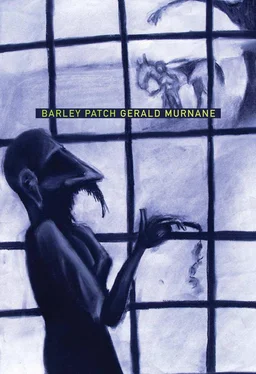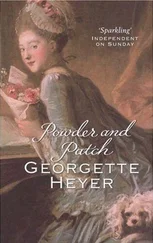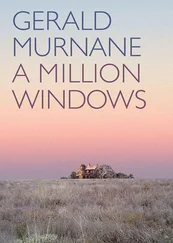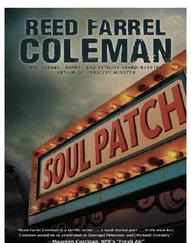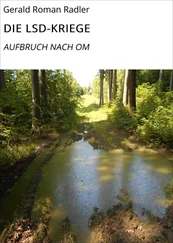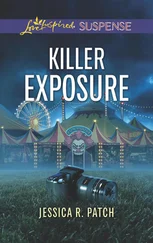Gerald Murnane - Barley Patch
Здесь есть возможность читать онлайн «Gerald Murnane - Barley Patch» весь текст электронной книги совершенно бесплатно (целиком полную версию без сокращений). В некоторых случаях можно слушать аудио, скачать через торрент в формате fb2 и присутствует краткое содержание. Год выпуска: 2011, Издательство: Dalkey Archive Press, Жанр: Современная проза, на английском языке. Описание произведения, (предисловие) а так же отзывы посетителей доступны на портале библиотеки ЛибКат.
- Название:Barley Patch
- Автор:
- Издательство:Dalkey Archive Press
- Жанр:
- Год:2011
- ISBN:нет данных
- Рейтинг книги:5 / 5. Голосов: 1
-
Избранное:Добавить в избранное
- Отзывы:
-
Ваша оценка:
- 100
- 1
- 2
- 3
- 4
- 5
Barley Patch: краткое содержание, описание и аннотация
Предлагаем к чтению аннотацию, описание, краткое содержание или предисловие (зависит от того, что написал сам автор книги «Barley Patch»). Если вы не нашли необходимую информацию о книге — напишите в комментариях, мы постараемся отыскать её.
Barley Patch — читать онлайн бесплатно полную книгу (весь текст) целиком
Ниже представлен текст книги, разбитый по страницам. Система сохранения места последней прочитанной страницы, позволяет с удобством читать онлайн бесплатно книгу «Barley Patch», без необходимости каждый раз заново искать на чём Вы остановились. Поставьте закладку, и сможете в любой момент перейти на страницу, на которой закончили чтение.
Интервал:
Закладка:
The publication in serial form of the whole novel surely took at least six months, during which time I would have seen myself often in my mind as a version of the character of the claimant, and even more often as a version of myself inserted into the scenery of the novel. During the two weeks while I was writing the previous two thousand words of this text, I recalled a number of my experiences as a child-reader of the text of Brat Farrar , but not once did I recall any scene in which any version of myself was alone with the young female character. I attribute this to the influence of Aunt Bee. Not only did the young female character consult the older woman at every turn, but I believe that I, whether as reader, seeming character, or intruder-into-the-text, was afraid of Aunt Bee.
If only I had been able, in spite of Aunt Bee, to spend some time alone with the young woman, I had prepared beforehand not just the substance of what I was going to tell her about myself but also the scenery in which I was going to tell it. I have little doubt that Josephine Tey would have described in detail more than one view of the countryside visible from the two-storey house, but all I recall today is the distant hill with the clump of trees and the name that I could not accept. The scenery mentioned two sentences ago was of my own making. As soon as I had understood that the two-storey house stood among green English countryside, I would have felt free to arrange throughout that countryside my own preferred distant views or hidden nooks. I recall more than fifty years later that I hoped often to sit with the young woman in an upper-storey room that had been fitted out as a parlour and the windows of which overlooked a distant moor or fen. I cared nothing for what might be called geographical veracity: I wanted to have the young woman see in the distance the sort of place where she and I might have strolled together as innocent friends if only we had known one another during childhood. Five or six years before I first read Wuthering Heights , I had decided that a moor was a most suitable place for a male and a female child to be alone together and to talk together until the image of each became in the other’s mind the trustworthy companion that he and she had always longed for. As for the fen, I thought of it as no more than a shallow swamp that two children might have walked around in complete safety. I believe I might even have decreed — I, the wilful reader — that the inexpertly named hill with the coppice near its summit was the source of a tiny stream that trickled downwards in rainy weather until it became, if the rain kept up, what English persons called a brook, which I understood to be a watercourse shallow enough and narrow enough for a child to be able to wade across or even to jump across. Since my early childhood, I had been afraid of large bodies of water or of fast-flowing, murky rivers and drains but much interested in shallow ponds or swamps or small creeks that filled or flowed only during seasons of rain. Walking with one of my uncles across his dairy farm during many of my summer school-holidays, I would have liked to inspect certain green places among clumps of rushes where the soil might have been still spongy and damp, but my uncle always reminded me that such places were infested by snakes. The equivalent indoors of my interest in shallow or trickling water was my longing to have access to an upper-storey window. At the time when I was reading Brat Farrar , I had never been inside a house of more than one storey, although I had often daydreamed of watching unobserved from an upper window not only persons close by but also distant landscapes. At least five years before I read Brat Farrar , I had been taken for the first time to a house where one of my mother’s older sisters lived with her husband and her four daughters in a clearing in the Heytesbury Forest, in south-western Victoria. My mother and my aunt, and even the four girls, my cousins, often amused themselves afterwards by recalling in my hearing that I had walked into one after another room during my first minutes in their house and had looked behind the door in each room. In reply to their questions at the time, I had said that I was looking for stairs. Their house was hardly more than a cottage, but something about the angle of the roof must have suggested to me as I approached that a few upper rooms or even a single attic might have looked out over much more of the forest than I could have seen if I had stood among its nearer trees. I found no stairs, of course, but I found later on the back verandah something that caused me to forget my disappointment. My two oldest girl-cousins, one of them of my age and the other a year older, were the owners of the first doll’s house that I had seen anywhere but behind shop-windows. The house was of two storeys, and seemed to be fitted out with items of tiny furniture. I could not inspect the house; its owners would not allow me or my younger brother to approach it. I tried to explain that I wanted only to look into the house and not to touch it, but the girl-owners were unmoved. My brother and my mother and I were to stay overnight. One of the girl’s beds was moved from their tiny bedroom onto the back verandah so that my brother and I could sleep head-to-toe in it. I can only suppose that my mother slept in one of the girl’s beds in their room and that two at least of the girls had to sleep head-to-toe, which might have explained in part why the older girls seemed to dislike their visiting cousins, especially me who begged to see into their doll’s house or, failing that, to join in their games or their conversations. During the early evening, I felt sure that the owners of the doll’s house would take it to their own room at any moment, but the house was still on the back verandah when my brother and I were preparing for bed. I could not believe that the owners had forgotten it. I supposed either that their mother had forbidden them to take the thing into their crowded bedroom or, more likely, that they, the girl-owners, had left it on the verandah in order to entrap me: they knew I was anxious to inspect the house and, probably, to handle some of the items in it; they knew also the rightful position of every bed and pillow and chair; in the morning they would find proof that I had handled certain things; they would convey this proof to their mother and, even perhaps, to my own mother; I would have to defend myself against the collective anger of my aunt and my mother and my girl-cousins. Having foreseen these possibilities, I became cautious. I forced myself to stay awake until half an hour after I had heard the owners of the doll’s house going to their room for the night. Then I slipped out of bed and knelt beside the doll’s house and tried to look in through an upper window. A certain amount of moonlight already lit up the back verandah, but while I knelt my head and shoulders kept the upper storey in darkness. I hesitated but then dared to slide the whole doll’s house far out onto the verandah, hoping that nothing inside had been moved. Then, while the moonlight shone through the windows on one side of the upper storey, I stared in through the windows of the other side. Moments before I applied my eye to the first of those windows, which were mere apertures and not glazed, I had intended to insert soon afterwards through another window one or more finger and then to touch one after another of the objects in the upper rooms. But in the event, I merely looked, although this was only partly because I was afraid I might leave some trace of my intrusion: some chair overturned or some bed-quilt turned down.
From an early age, I had read each week a comic-strip that filled the inside back cover of the Australian Women’s Weekly . The title of the strip was “Mandrake the Magician.” To this day, I do not know whether the creator of Mandrake and his companions was a resident of Australia or of the United States of America. As a child, I was content to locate Mandrake’s adventures in a daydream-country where towering cities were set far apart on rolling grasslands: a country deriving in part from the few films that I had seen but also from the glimpses of far-reaching landscapes that came to me whenever I heard from a distant radio on a quiet afternoon the faint sounds of some or another hit-parade song.
Читать дальшеИнтервал:
Закладка:
Похожие книги на «Barley Patch»
Представляем Вашему вниманию похожие книги на «Barley Patch» списком для выбора. Мы отобрали схожую по названию и смыслу литературу в надежде предоставить читателям больше вариантов отыскать новые, интересные, ещё непрочитанные произведения.
Обсуждение, отзывы о книге «Barley Patch» и просто собственные мнения читателей. Оставьте ваши комментарии, напишите, что Вы думаете о произведении, его смысле или главных героях. Укажите что конкретно понравилось, а что нет, и почему Вы так считаете.
